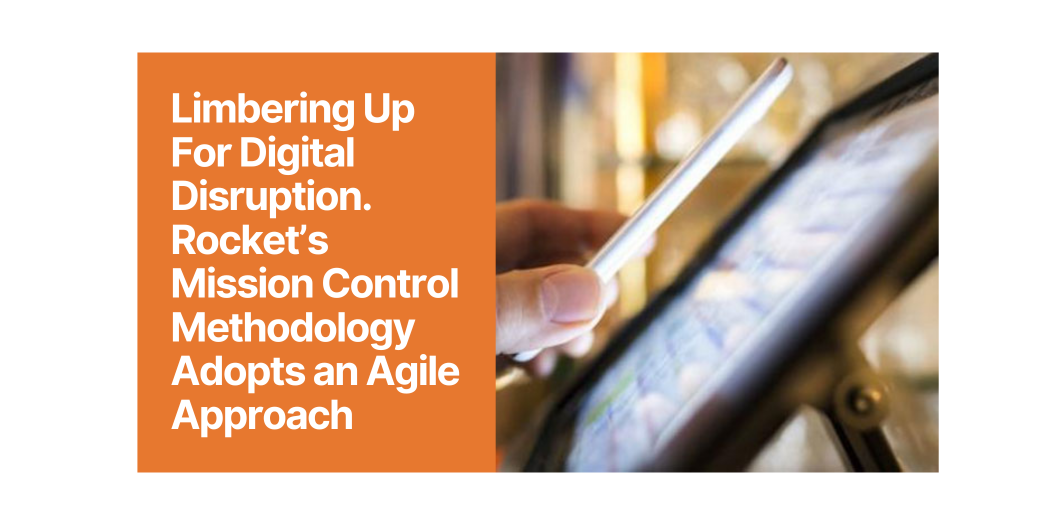Limbering Up For Digital Disruption. Rocket’s Mission Control Methodology Adopts an Agile Approach
Donna Unitt
June 29,2017


For many years, large-scale projects have been delivered successfully using a waterfall approach. This linear view agrees the design and desired outcomes at the beginning; the various stages of the undertaking are then ticked off until it is completed.
This method has continually proved to be highly effective, and is still the best technique for large complex projects such as a warehouse management system implementation with a clearly defined scope.
But, as referenced in previous blog posts, the world is changing – and with that the type of projects that we work on. Digital transformation is a key theme, and this needs a new approach. Rocket, with its culture of continuous improvement (to enable customers to do the same) has innovated accordingly – disrupting our own process if you like - in line with how we are increasingly using our skills.
The result is Rocket’s Mission Control Methodology; an approach that enables Rocket to focus on critical business issues and tackle all projects comprehensively and systematically, and in a way that defines and integrates an acceptable level of risk.
It incorporates our Agile Approach, which uses the system to ‘design on the go’ when projects need a fast design and development cycle. This sees us work in short bursts of activity (‘sprints’) to deliver one element, which is then assessed; the feedback provided informs the next development phase.
Based on Rocket’s STOP (Systems, Technology, Operations and People) principle, Agile means the project scope is fluid so that the end result is tailor-made for the organisation’s specific requirements.
With the Agile Approach, Rocket has developed a methodology that empowers our project teams to do the right thing, the right way, the first time. It finds mutually beneficial ways to work with our customers and lets us deliver cost-effective solutions to tight deadlines.
Rocket was commissioned to develop a mobile application to replace paper-based timesheets for gas engineers working in the field. The app provides real-time feeds and visibility, enabling proactive action when necessary and requires that engineers input the time spent on certain tasks.
Throughout the project, we incorporated the input of the people who would use the app on a daily basis – the engineers themselves. This user group provided feedback on issues such as how easy it was to add their information (are the input boxes big enough on the mobile phone version, for example) and whether there were connectivity issues.
This level of detail reflects Rocket’s experience that it is often the simple things that determine how well the final product is adopted; frequent two-way dialogue from the early stages is the only way to capture any issues in time for them to be designed out, or for additional benefits to be identified and included.
Rocket’s Agile Approach isn’t exclusive – our Bi-Modal methodology gives us the flexibility to fuse agile design for the project development with a linear approach for elements such as training, user acceptance testing and go-live.
Rocket also combines its approach with that of its customers to achieve a successful collaborative delivery when that is the best option for a project.
In summary, we make a realistic assessment of the risks and difficulties encompassed in each large project and put in place the strategies needed to minimise and overcome them.
• Mission Control Methodology sees a consistent and repeatable process, that is scalable for project scope and size, used on all work that Rocket undertakes
• The Agile Approach lets us design on the go so that user feedback is continually fed back in to the project design and development cycle
• Customer resources usually fulfil a significant role in project activities; the benefits from early involvement in the process facilitate ownership, while the iterative approach delivers consistent quality.
To find out why our Mission Control Methodology could be your next step to digital transformation, contact Rocket…